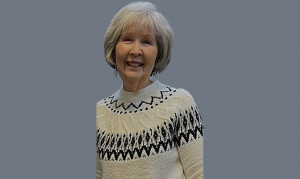One day over lunch, my new-to-the-South-but-thoroughly-loving-it husband commented on the choir singing at our church which is led by my brother-in-law, Rodney.
“Among the several things I love about the music at church is that people sing different parts,” he said. “At most churches today, everyone sings together.”
True. Many churches have turned away from hymn singing and toward what is known as praise worship. In doing so, an important feature of Southern history is falling to the wayside. As an advocate of our history and legacy, I chose a church that honors that tradition.
I smiled. “It’s four-part harmony. Alto, soprano, tenor and bass.”
Without request, I launched into a history lesson on shaped-note singing and the importance it had to the rural South, especially the Appalachian Mountains.
The early colonists in New England had sought religious freedom in a new land called America. From the onset, they celebrated congregational singing with harmony.
It is, indeed, very pretty as the higher pitched voices of women sing notes that compliment their sound while the lower pitched voices of men stay on their notes. Harmony singing filtered down through the mountains and stuck hard in the Southern Appalachians.
Not long ago, I ran across a tablet of mine from my 11th year of life. There, in my tiny cursive writing, were the notes I had taken during our annual singing school at church.
It was taught by a local legend named Hyman Brown, a short, rotund man with lots of black, wavy hair and a big laugh that echoed as pretty as the piano sounded when his fingers danced across its keys. And when he sang? Oh my. It was the purest tenor. If his voice was an image, it would be a sparkling, clear, cool river.
He was an insurance salesman by trade, but he spent most of his weekday evenings teaching singing schools at churches across north Georgia. He and Daddy were great friends.
When Hyman was killed by a drunk driver one cold January night, it fell to Mama to break the news the next morning. She had taken the call, roused me, a college sophomore, from bed and told me what happened. “Get up and come to breakfast. I want you to be with me when I tell your daddy. He’ll take it hard.”
She waited until he had finished eating, pushed his plate aside and was stirring his coffee. When she gently broke the news, unfiltered sadness fell across his face, aging him noticeably. After a long moment, he spoke.
“I knew somethin’ was wrong when I heard the phone. It had a sad ring to it.”
On the day of the funeral, Daddy stood on the porch of the old Victorian house of the funeral home. He watched as the casket of his dear friend was carried out and he heaved the heaviest, most mournful sigh I had ever heard. I cried for my daddy’s great sorrow.
Hyman had been a formidable disciple of the Scotch-Irish practice of singing schools and shaped note singing. Our people believed steadfastly in storytelling, whiskey-making and music making. My family down through the generations has fervently practiced all three.
Singing schools were a tradition where harmony and “sight reading” by shaped notes were taught. I sing and play the piano — both woefully bad — by reading the shape of notes.
In churches like ours, the men gather on one side and the women on the other so they can sing parts and blend deliciously together. To me, it is simply beautiful to hear songs like “I’ll Fly Away” or “When We All Get To Heaven” sung with such gusto, almost always ending with a soprano refrain.
“We need to have a singing school,” I said to Rodney one day. “Otherwise, the kids comin’ up won’t know how to sing shape-noted harmony.”
And that to me, would be a tragic loss to our culture.
[Ronda Rich is the best-selling author of “There’s A Better Day A-Comin’.” Visit www.rondarich.com to sign up for her weekly newsletter.]












Leave a Comment
You must be logged in to post a comment.